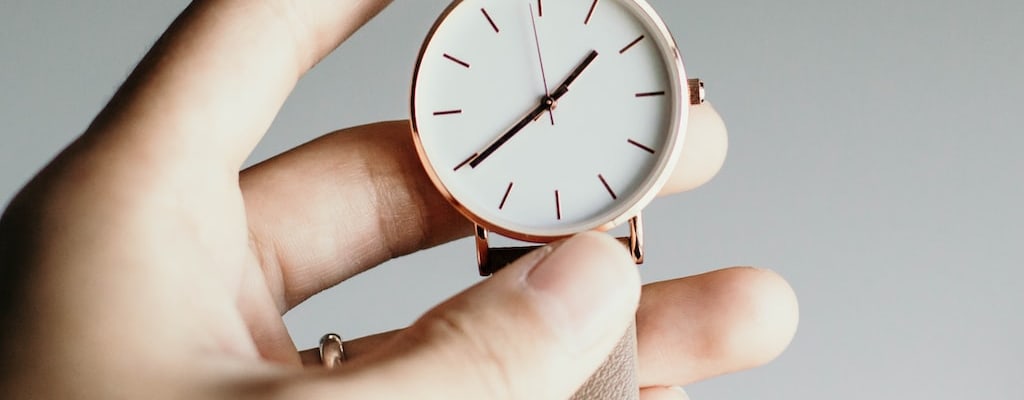keep tabs on: Idiom Meaning and Origin
What does ‘keep tabs on’ mean?
The idiom "keep tabs on" means to monitor or keep a close watch on someone or something. It implies staying informed or updated about the activities, progress, or whereabouts of a person or situation.

Idiom Explorer
The idiom "keep watch" means to stay vigilant or be on the lookout for potential dangers or threats. It implies being aware and alert to ensure the safety or security of someone or something.
The idiom "keep up" means to maintain the same level or pace, or to continue at a sufficient rate. It can refer to staying informed or being able to match or compete with others.
The idiom "keep the show on the road" means to continue with a task or activity without interruption or delay. It is often used to indicate the importance of maintaining progress or forward momentum to achieve a desired outcome or goal.
The idiom "keep someone posted" means to regularly inform or update someone about a particular situation or event. It is commonly used in formal and informal settings to express the need for ongoing communication and keeping others informed.
The idiom "keep someone on their toes" means to keep someone alert, attentive, or prepared for any unexpected situation.
The idiom "keep someone on ice" means to delay or postpone something, typically a decision or action involving someone, usually to wait and see how a situation develops before taking any further action.
The idiomatic phrase "keep someone in the loop" means to include and inform someone about the relevant information and updates regarding a particular situation or project.
The idiom "keep someone company" means to stay with or accompany someone in order to provide them with companionship or prevent them from feeling lonely.
The idiom "keep pace" means to maintain a similar speed, progress, or level as someone or something else.
The idiom "keep one's head on a swivel" means to remain alert, vigilant, or attentive in order to be aware of one's surroundings and potential dangers or threats. It emphasizes the need to be constantly observant and ready to react quickly.
Cracking the Code
The idiom "keep tabs on" is a commonly used expression in the English language. It is often used to describe the act of monitoring or keeping track of someone or something. The origins of this idiom can be traced back to the late 19th century, although the exact origin is unclear. Despite its ambiguity, there are several key facts that can be established with certainty about this idiomatic phrase.
Firstly, the word "keep" in this expression signifies the continuous action of maintaining or holding onto something. In this context, it implies the ongoing act of observing or monitoring. The word "tabs" refers to small, folded pieces of paper or cardboard that can be used as markers or indicators. Its purpose is to provide a means of keeping track of information or progress.
Secondly, the combination of "keep tabs on" suggests a conscious effort to remain aware of someone's actions, whereabouts, or progress. It implies a sense of vigilance or surveillance, often done discreetly or without the person being monitored being aware of it.
Furthermore, this idiom can be related to the idioms "keep an eye on" and "keep a close watch." These idioms share a similar meaning and are often used interchangeably. "Keep an eye on" emphasizes the act of vigilantly observing or monitoring someone or something. It implies a level of attentiveness and caution, similar to "keep tabs on." On the other hand, "keep a close watch" implies a heightened sense of surveillance or scrutiny. It suggests a more intense focus and attention to detail, emphasizing the importance of closely monitoring someone or something.
The idiom "keep tabs on" is commonly used in various contexts. It can refer to monitoring the activities of an individual, such as a supervisor keeping tabs on an employee's performance or a parent keeping tabs on their child's behavior. It can also refer to tracking the progress or status of a particular situation, such as keeping tabs on a project's development or staying informed about the latest news or updates.
Additionally, the idiom "keep tabs on" is idiomatic in nature, meaning that its meaning cannot be deduced from the individual words that make up the phrase. This type of idiom relies on cultural and linguistic conventions to convey its intended meaning.
Furthermore, this idiom can be related to the idioms "keep an eye on" and "keep a close watch." These idioms share a similar meaning and are often used interchangeably. "Keep an eye on" emphasizes the act of vigilantly observing or monitoring someone or something. It implies a level of attentiveness and caution, similar to "keep tabs on." On the other hand, "keep a close watch" implies a heightened sense of surveillance or scrutiny. It suggests a more intense focus and attention to detail, emphasizing the importance of closely monitoring someone or something.
The idiom "keep tabs on" is widely recognized and understood by English speakers, both in the United States and other English-speaking countries. Its usage is prevalent in both formal and informal settings, making it an integral part of everyday conversation.
Furthermore, this idiom can be related to the idioms "keep an eye on" and "keep a close watch." These idioms share a similar meaning and are often used interchangeably. "Keep an eye on" emphasizes the act of vigilantly observing or monitoring someone or something. It implies a level of attentiveness and caution, similar to "keep tabs on." On the other hand, "keep a close watch" implies a heightened sense of surveillance or scrutiny. It suggests a more intense focus and attention to detail, emphasizing the importance of closely monitoring someone or something.
The idiom "keep tabs on" is a commonly used phrase that conveys the act of monitoring or staying informed about someone or something. Its origins can be traced back to the late 19th century, although the exact origin remains uncertain. Despite its ambiguity, the idiom is widely understood and recognized, making it an essential component of the English language.
Example usage
Examples of how the idiom "keep tabs on" can be used in a sentence:
- 1. I need to keep tabs on my expenses to stay within my budget.
- 2. The detective decided to keep tabs on the suspect's whereabouts.
- 3. Our team leader asked us to keep tabs on the progress of the project.
More "Monitoring" idioms
We missed the mark - nothing found.



